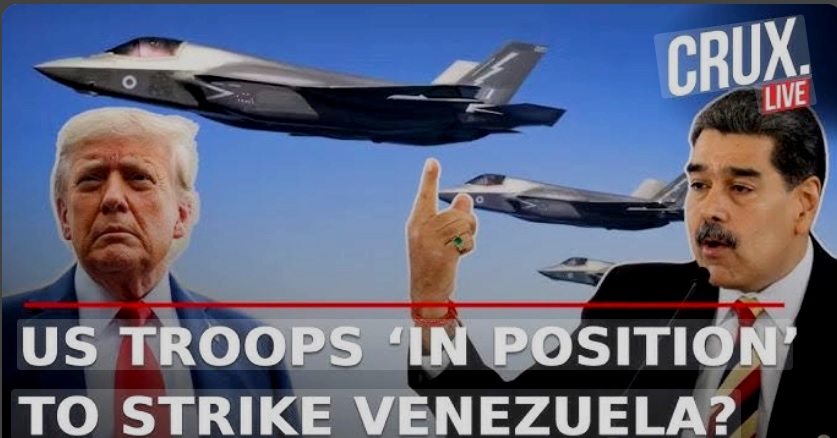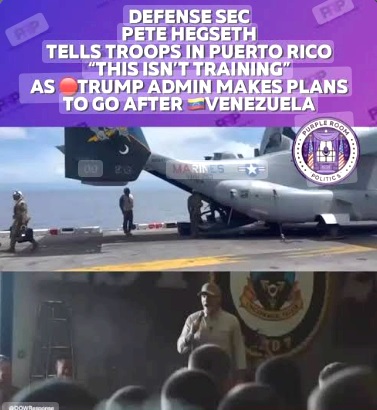 Trump and Maduro
Trump and Maduro
U.S. Secretary of Defense Pete Hegseth says US deployment in Caribbean “isn’t training” on Puerto Rico visit, Reuters reports.
Secretary of Defense Pete Hegseth told sailors and Marines on a warship off Puerto Rico on Monday that they were not deployed to the Caribbean for training but instead sent to the "front lines" of a critical counter-narcotics mission.
Hegseth's remarks came during a surprise visit along with the top U.S. general to Puerto Rico amid escalating tensions with Venezuela, which U.S. President Donald Trump's administration accuses of trafficking narcotics to the United States – allegations denied by Caracas.
Trump has ordered the Department of Defense to rename itself the Department of War, a change that will require action by Congress. The new name would apply to Hegseth as well, altering his title to "Secretary of War."
The USS Iwo Jima was positioned off the coast of Puerto Rico, a U.S. territory located north of Venezuela in the Caribbean where Hegseth and the chairman of the Joint Chiefs of Staff, Dan Caine, visited earlier in the day.
Trump has long accused Venezuelan President Nicolas Maduro of narco trafficking, allegations Caracas has always denied.
The Trump administration has ordered the deployment of 10 F-35 fighter jets to a Puerto Rico airfield to conduct operations against drug cartels, sources told Reuters on Friday.
That deployment comes on top of an already bristling U.S. military presence in the southern Caribbean, which the Trump administration says carries out a campaign pledge to crack down on groups funneling drugs into the United States.
Last week a U.S. military strike in the Caribbean killed 11 people and sank a boat from Venezuela that Trump said was transporting illegal narcotics.
Members of the U.S. Congress have asked for the legal rationale for the deadly strike, noting that the administration has yet to say how it knew who was in the boat or what it was carrying. Administration officials had agreed to provide a classified briefing for congressional staff on Friday, but the meeting was abruptly rescheduled.
"There is no way on God's green earth you can say that whatever was in this boat presented any sort of imminent threat to the United States in a military sense of the word," Representative Adam Smith, of Washington, the top Democrat on the House of Representatives Armed Services Committee, said.

Meanwhile, Venezuela's government on Monday insisted that the U.S. is falsely accusing it of playing a crucial role in the global drug trade. Vice President Delcy Rodriguez told reporters the U.S. government should redirect its recently deployed maritime force to the Pacific, where fast boats and container ships have long carried Colombian cocaine.
"Those ships that are trying to intimidate Venezuela today should be there in the Pacific if they truly wanted to fight and prevent cocaine from reaching the United States of America," she said. "They have a GPS location problem. They're where they shouldn't be. They need to calibrate their GPS."
Rodriguez, citing reports from the United Nations and the U.S. Drug Enforcement Administration, added that Venezuela "has absolutely nothing to do with the deaths of (U.S.) citizens from drug overdoses" as the country "is not relevant" in global drug production.
She suggested the U.S. should focus on fighting consumption within its borders.
"There's a lot of hypocrisy, a lot of double standards, a lot of political manipulation of this issue to attack, to intervene, to aim for regime change in countries that aren't sympathetic," she said, referring to drug trafficking.
read more in our Telegram-channel https://t.me/The_International_Affairs

 11:32 10.09.2025 •
11:32 10.09.2025 •






















